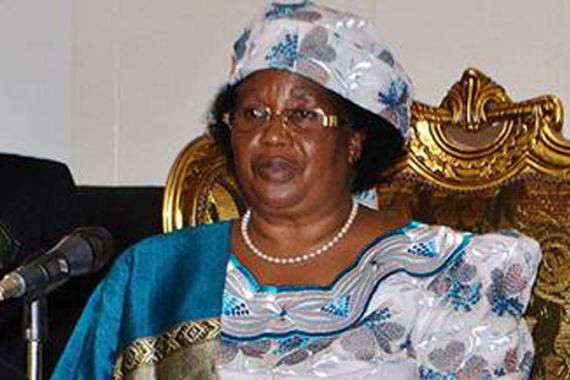Malawi cancels AU summit over Sudan’s Bashir
Southern African country refuses to host meeting over bloc’s insistence on inviting international war crimes suspect.

Malawi will not be hosting the African Union summit next month in a dispute over the bloc’s insistence on inviting Omar al-Bashir, Sudan’s president.
The southern African country said on Friday that it had refused to bow to the 54-member group’s condition that Bashir, who is wanted by the International Criminal Court (ICC) on charges of genocide, crimes against humanity and war crimes, attend the meeting in Lilongwe.
Malawi recognises The Hague-based ICC, under whose rules signatories have a duty to arrest Bashir.
“After considering the interests of Malawians, I want to inform Malawians that the cabinet met today and decided it was not interested to accept the conditions by the African Union, therefore Malawi is not hosting the summit,” Vice President Khumbo Kachali told journalists.
Kachali said the country had received a communication from the AU commission that as a host country Malawi was required to invite all the continent’s presidents, including Bashir.
“The commission said if Malawi was not willing to host al-Bashir, the venue should be shifted to another country,” he said, adding that the summit would be hosted by Ethiopia.
Joyce Banda, Malawi’s new president, said last month that she wanted Bashir to stay away to avoid straining ties with key donors for her impoverished country.
Banda has embarked on a major drive to smooth ties with the international community which were soured under her predecessor Bingu wa Mutharika and has taken a number of bold steps to steer the country into donor-friendly waters.
Foreign aid once provided roughly 40 per cent of Malawi’s development budget but funding was slashed amid an economic crisis and governance concerns under Mutharika’s rule.
‘Direct challenge to ICC’
Earlier this week, ICC prosecutor Luis Moreno-Ocampo told the UN Security Council that failure to detain him and other Sudanese officials accused of war crimes and genocide was “a direct challenge to the council’s authority”.
He said the council should consider calling on all 193 UN member states and regional organisations to carry out the arrest warrants.
The Sudanese leader is the first sitting president indicted by the court and his visits spark diplomatic headaches for African nations, with some signatories vowing his arrest on their soil while others flout the court’s rules.
Malawi was reported to the council in December for refusing to arrest Bashir after Mutharika gave him a red carpet welcome at a regional trade summit.
In 2009, the AU said it would not respect the ICC warrant and urged the United Nations to suspend the arrest order.
Last month, the foreign minister of Benin, which is the current chair, said the group had no reason to bar Bashir from the summit.
The meeting, meant to end with a heads of state summit from July 15-16, was set to elect a new commission chair after a deadlock in January.